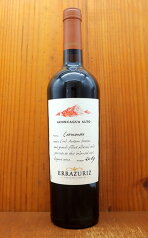(prt) (1) -ing and -ing (e.g. "coming and going")
(2) (used adverbially) doing such things as...
(3) expresses a command
(aux-v) (4) (arch) (after a noun) to be
(5) (arch) indicates completion or continuation of an action
(P)
(aux-v) (those) who are
(that) which is
often used in relation to qualifications and requirements for a position
in the capacity of
(suf) (m-sl) (fam) (fem) (cute) suffix for familiar person
(prt) (1) (fam) marks wh-question (what, where, who)
(2) (chn) strengthens one's judgment or conclusion
(P)
(conj) but
however
(and) yet
nevertheless
still
for all that
(P)
(n) (abbr) trot (as in horse riding)
(exp) if it's the case
(P)
(prt) even
(suf,prt) and
or
and the like
and so forth
and what not
(P)
(n) (1) dowel
(n) (2) (abbr) double bogie
(prt) (1) -ing and -ing (e.g. "coming and going")
(2) (used adverbially) doing such things as...
(3) expresses a command
(exp) (1) seems
I think
I guess
I wonder
I hope
(2) don't you agree?
I thought you'd say that!
(n,adj-no) ellipse
(n) literary form imparting the nuance of speech (with sentences ending in "da")
(n,vs) capture
seizure
(int) shoot
shit
dang
crap
rats
dammit
(n) dish of fish (meat, etc.), tofu, vegetables boiled together and served with ponzu dipping sauce
(n-suf) intimate (or disdainful) suffix used after a person's name (or the base of an adjective describing that person)
(prt) particle indicating that the speaker is trying to recall some information
(aux) col. form of desu
(prt) casual quoting particle
(P)
(suf) (col) someone with a liking or characteristic
a true representative of (place)
(adv) (1) just (now)
(2) quite (near)
(3) unintentionally
unconsciously
by mistake
against one's better judgement (judgment)
(P)
(prt) while
though
(P)
(adv) (1) quickly
(2) calmly
(3) intently
(adv,n) sauce for dipping tempura
(ok) (suf) (1) apiece
each
(2) at a time
piecemeal
(P)
(n) Di (ancient Chinese ethnic group)
(prt) a sort of thing like
used after a phrase to modify the following noun
(prt) (1) indicates emotional closeness or annoyance with someone
(2) indicates a indirect command by expressing annoyance (in sentence-final position)



![OPI オーピーアイ ベースコート 15ml NTT10 国内正規品 O・P・I ベース・トップコート [0015/NTT10] メール便無料[A][TG100] ナチュラルネイル ベースコート マニキュア 保護](https://thumbnail.image.rakuten.co.jp/@0_mall/cosmenana/cabinet/10585/1058502015.jpg?_ex=238x238)